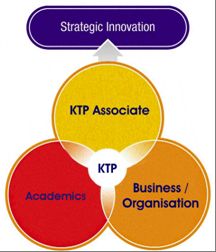As part of their contribution to the RCUK Global Uncertainties Programme, EPSRC and ESRC are jointly inviting proposals for research consortia (PDF 79KB) to explore current and future cyber security challenges.
CEReS consortia are encouraged to work across or between established disciplines and to draw on expertise from multiple research organisations wherever necessary. They particularly welcome proposals with significant novel mathematics and/or social science content.
Initially, outline proposals will be assessed for their novelty and fit to the aims of the call. Successful outline applicants will be invited to submit full proposals later in 2012.
EPSRC and ESRC have made available up to £4M available to fund full proposals funded through the CEReS call. They expect to support a range of projects which is broad in terms of scale (likely to be between £500k and £1M for each consortium), duration (two to four years), mix of disciplines (with single discipline proposals being the exception rather than the norm) and subject matter (although all must focus on cyber security-related challenges in the broadest sense). Activities funded through CEReS are limited to those currently allowed on EPSRC grants. As a result they will not be able to accept applications which request funding for PhD studentships, even if they are outside EPSRC’s remit.
CEReS is a call for exploratory research. Consortia should identify ambitious goals with far-reaching impacts on future research and, potentially at least, practice in cyber security. Projects which continue or extend current work in a straightforward or obvious way will not be supported. Collaboration between disciplines is strongly encouraged. Although it is not essential that all projects include cross- or intra-disciplinary working it is likely that the assessment process will select positively for consortia which adopt this approach.
Although it is being managed by EPSRC the CEReS call is also open to researchers eligible to apply for targeted funding from ESRC. There is no quota of applications or funding based on Research Council remits. It is possible for the same researcher(s) to be associated with more than one consortium application.
For further information visit the call website: http://www.epsrc.ac.uk/funding/calls/open/Pages/ceres.aspx and read the call documentation: http://www.epsrc.ac.uk/SiteCollectionDocuments/Calls/2012/CEReSCall.pdf. Outline proposals should be prepared and submitted using the Research Councils’ Joint electronic Submission (JeS) System (https://je-s.rcuk.ac.uk/).
The RKE Operations team can help you with your application.
The closing date is 14 June 2012.



 The next round of the internal small grants scheme closes this month on 31st May. The scheme provides up to £2000 per application for direct costs.
The next round of the internal small grants scheme closes this month on 31st May. The scheme provides up to £2000 per application for direct costs.






















 Seeing the fruits of your labour in Bangladesh
Seeing the fruits of your labour in Bangladesh Exploring Embodied Research: Body Map Storytelling Workshop & Research Seminar
Exploring Embodied Research: Body Map Storytelling Workshop & Research Seminar Marking a Milestone: The Swash Channel Wreck Book Launch
Marking a Milestone: The Swash Channel Wreck Book Launch No access to BRIAN 5-6th February
No access to BRIAN 5-6th February ECR Funding Open Call: Research Culture & Community Grant – Application Deadline Friday 12 December
ECR Funding Open Call: Research Culture & Community Grant – Application Deadline Friday 12 December MSCA Postdoctoral Fellowships 2025 Call
MSCA Postdoctoral Fellowships 2025 Call ERC Advanced Grant 2025 Webinar
ERC Advanced Grant 2025 Webinar Update on UKRO services
Update on UKRO services European research project exploring use of ‘virtual twins’ to better manage metabolic associated fatty liver disease
European research project exploring use of ‘virtual twins’ to better manage metabolic associated fatty liver disease